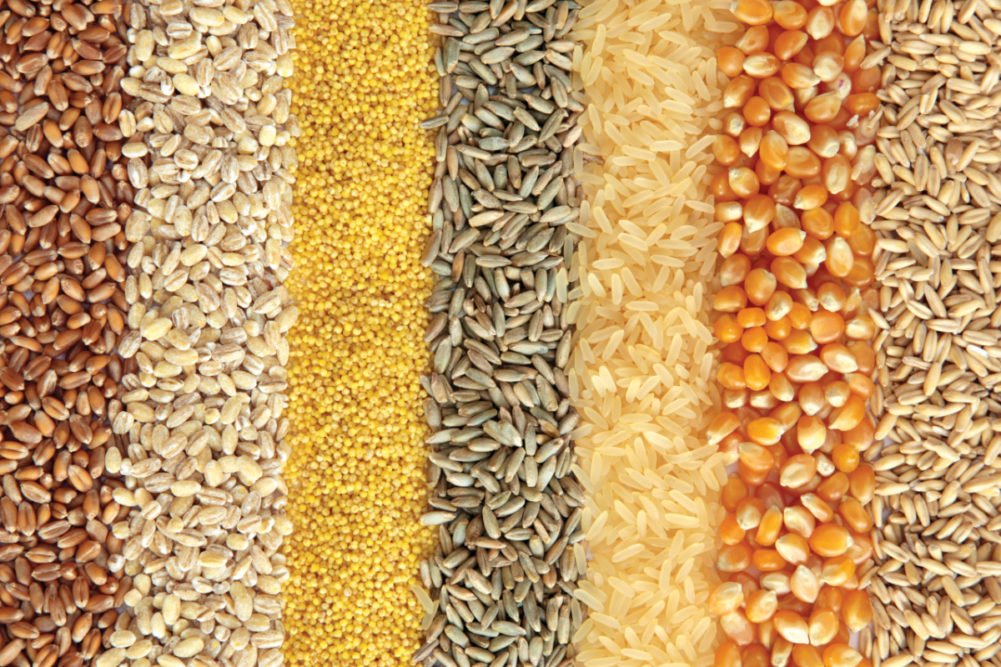Introduction to grains
Grains are the edible seeds of plants. They are a staple food in many cultures and are a great source of carbohydrates, fiber, protein, and other essential nutrients. Grains are versatile and can be incorporated into many different types of meals and snacks. Some examples of whole grains include oats, quinoa, brown rice, whole wheat, and barley.
Grains can be prepared in a variety of ways, such as boiling, baking, or frying, and can be used in a wide range of dishes, from bread and pastries to salads and soups.
Consuming whole grains can provide various health benefits as these grains are high in fiber, vitamins, minerals, protein, antioxidants, and plant compounds which can lower the risk of diabetes, heart disease, and high blood pressure.
The fiber content of whole grains prevents overeating and reduces the risk of heart disease and stroke. Eating whole grains instead of refined grains can significantly lower total cholesterol, LDL cholesterol and insulin levels.
Incorporating whole grains into your diet can also promote healthy digestion and regular bowel movements. The fiber in whole grains helps to keep the digestive system moving smoothly and can reduce the risk of constipation and other digestive issues.
Overall, grains are an important part of a healthy and balanced diet. Consuming whole grains can provide numerous health benefits and can help to reduce the risk of chronic diseases. It’s important to choose whole grain options whenever possible and to incorporate a variety of grains into your meals and snacks.

Are grains really that healthy?
Grains can be a healthy addition to one’s diet as they are rich in fiber, vitamins, and minerals. However, it’s important to note that consuming grains can provide many health benefits, there are some potential disadvantages to consider. Refined grains such as white rice and white bread have had the nutrient-rich outer layer removed during processing, making them less healthy.
Some grains can cause inflammation in certain individuals, particularly those with celiac disease or gluten sensitivity. Gluten is a protein found in wheat, barley, and rye. This response can cause damage to the lining of the small intestine, leading to a range of symptoms such as digestive issues, fatigue, and joint pain.
Additionally, some grains may be high in phytic acid which can reduce the absorption of certain minerals in the body, but this can be mitigated by soaking or sprouting grains before consuming them.
One the other hand some processed grain products such as white bread and sugary cereals can be high in added sugars and refined carbohydrates, which can contribute to weight gain and other health issues when consumed in excess.

Conclusion
Grains can affect human health in both positive and negative ways, depending on various factors.
On the positive side, whole grains are an important source of nutrition and can provide numerous health benefits. They are a good source of fiber, which can help reduce the risk of heart disease, diabetes, and some forms of cancer. Whole grains also contain vitamins, minerals, and phytochemicals that are important for overall health, and can help improve digestion, regulate blood sugar levels, and promote a healthy weight.
However, on the negative side some people may have specific health conditions or food intolerances that require them to limit or avoid grains, such as those with celiac disease or gluten sensitivity. Additionally, some processed grain products, such as white bread and sugary cereals, can be high in added sugars and refined carbohydrates, which can contribute to weight gain and other health issues.
Overall, while there can be some negative effects of consuming grains, for most people, consuming whole grains in moderation as part of a balanced diet can be beneficial to health. It’s important to choose whole grain options and limit processed grain products, and to listen to your body and adjust your grain intake if you have specific health concerns.




